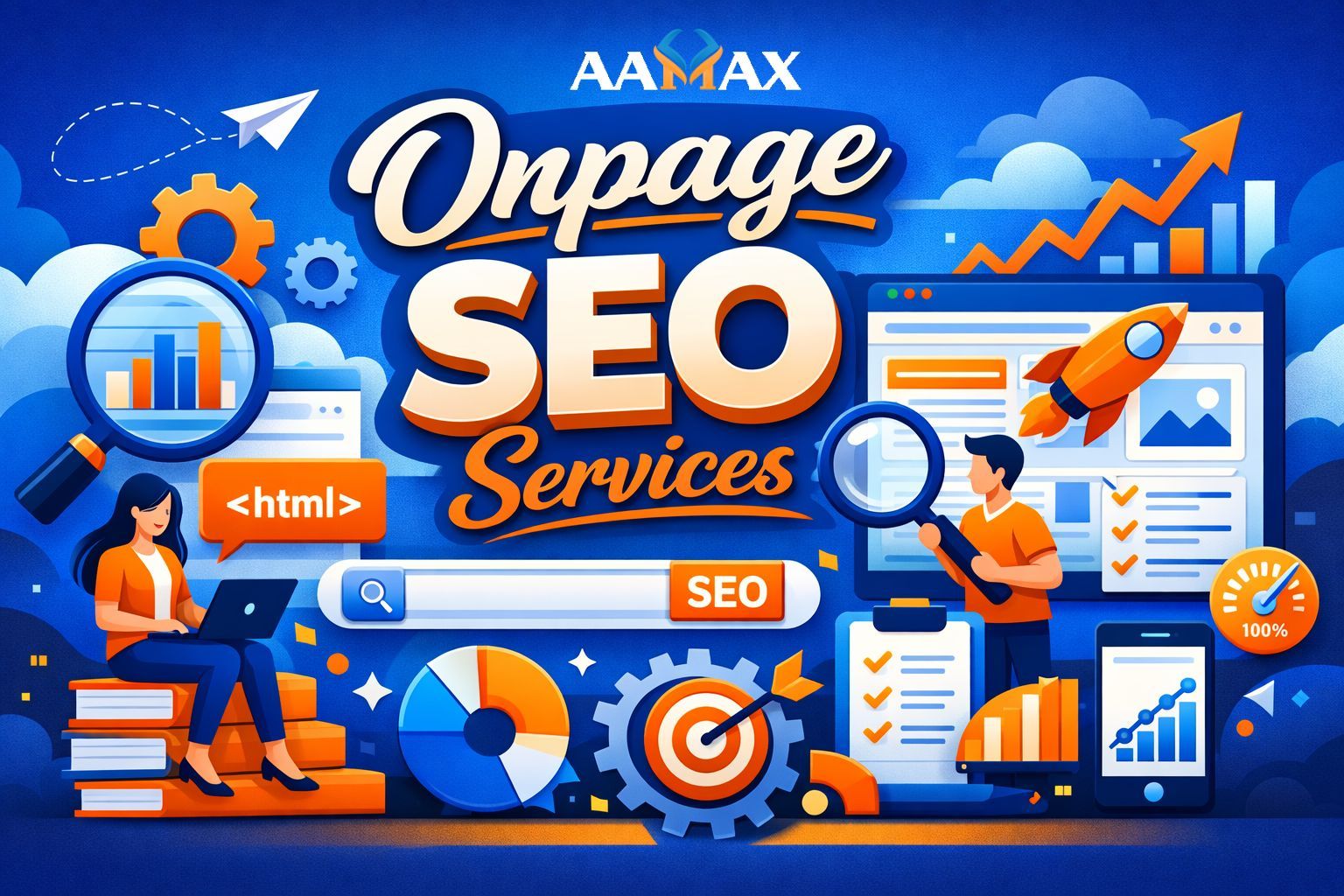
PPC Audit: Step-by-Step Guide to Auditing Your PPC Ads
Pay-per-click (PPC) advertising is one of the most powerful ways to drive targeted traffic and generate leads. However, without regular audits, even the most well-constructed PPC campaigns can become inefficient, expensive, and less effective over time. A PPC audit helps ensure your ads are optimized for maximum ROI, efficiency, and relevance.
In this comprehensive guide, we’ll walk you through a step-by-step process to audit your PPC ads effectively. Plus, if you need professional help, AAMAX, a full-service digital marketing company offering Web Development, Digital Marketing, and SEO Services, can expertly manage your PPC campaigns for you.
What is a PPC Audit?
A PPC audit is a detailed evaluation of your pay-per-click advertising campaigns to identify inefficiencies, missed opportunities, and areas for improvement.
Auditing your PPC accounts regularly ensures that your strategy aligns with your business goals, your budget is used efficiently, and your ads deliver the highest possible ROI.
Why is a PPC Audit Important?
Performing regular PPC audits provides several key benefits:
- Improved ROI: Identify wasted spend and reallocate budgets more effectively.
- Better Ad Quality: Ensure that your ads are high-quality and relevant to your audience.
- Lower CPC (Cost Per Click): Optimize campaigns to pay less per click while achieving better results.
- Increased Conversion Rates: Find opportunities to better align landing pages and ad messaging.
- Strategic Alignment: Make sure your PPC goals match your overall marketing objectives.
When Should You Perform a PPC Audit?
PPC audits should be conducted:
- Quarterly: As a routine best practice.
- Before Scaling: When planning to increase budgets or expand campaigns.
- After Major Changes: Following a website redesign, product launch, or rebranding.
- If Performance Declines: When you notice a sudden drop in clicks, conversions, or ROAS.
Step-by-Step Guide to Auditing Your PPC Ads
Step 1: Review Account Structure
A well-organized account is the foundation of effective PPC management. Review the following:
- Campaign Segmentation: Are campaigns segmented logically (by product, service, location, audience)?
- Ad Groups: Are ad groups tightly themed with relevant keywords and ads?
- Naming Conventions: Are campaign and ad group names clear and consistent?
An optimized structure makes management, reporting, and optimization easier.
Tip: Avoid putting too many keywords in one ad group. Ideally, limit each ad group to tightly related keywords.
Step 2: Check Conversion Tracking
If you can’t track conversions accurately, you can’t optimize for performance.
- Verify Conversion Actions: Ensure forms, phone calls, purchases, or other key actions are tracked properly.
- Review Attribution Models: Are you using the right attribution model (last click, first click, data-driven)?
- Google Tag Manager: Ensure that tags and triggers are firing correctly.
Without accurate tracking, your PPC performance data becomes unreliable.
Step 3: Analyze Keyword Performance
Your keywords drive traffic; reviewing them critically is essential.
- High-Cost, Low-Performance Keywords: Identify and pause keywords that cost too much without delivering results.
- Keyword Match Types: Review the balance between broad, phrase, exact, and negative keywords.
- Negative Keywords: Are you actively adding negative keywords to avoid irrelevant traffic?
- Search Term Reports: Regularly review which search queries trigger your ads and adjust accordingly.
Pro Tip: Shift towards more exact and phrase match types where appropriate to increase relevancy and decrease wasted spend.
Step 4: Evaluate Ad Copy
Your ad copy needs to be compelling and relevant.
- Ad Relevance: Is the ad copy closely related to the targeted keywords?
- Clear Call-to-Action (CTA): Every ad should prompt the user to take an action.
- Ad Variations: Are you testing multiple versions of each ad (A/B testing)?
- Responsive Search Ads (RSAs): Are you utilizing RSAs to allow Google to mix and match headlines and descriptions for best performance?
Remember: strong ad copy significantly influences click-through rates (CTR).
Step 5: Inspect Landing Pages
Driving traffic is only half the battle; converting that traffic is critical.
- Relevance: Does the landing page closely match the ad messaging?
- Speed: Is the landing page loading quickly (under 3 seconds)?
- Mobile Optimization: Is the page responsive and easy to navigate on smartphones?
- Clear Conversion Path: Is it easy for users to complete the desired action?
A poorly optimized landing page can destroy even the best PPC strategy.
Step 6: Audit Bidding Strategies
Your bidding strategy impacts how much you pay and the results you achieve.
- Manual vs Automated Bidding: Are you leveraging smart bidding strategies like Target CPA, Target ROAS, or Maximize Conversions?
- Bid Adjustments: Are you adjusting bids based on device, location, time of day, or audience?
- Budget Allocation: Are budgets prioritized correctly across campaigns?
Test different strategies to find the one that best suits your goals.
Step 7: Review Audience Targeting
Modern PPC platforms allow powerful audience targeting options.
- Demographic Targeting: Are your ads reaching the right age, gender, parental status, etc.?
- Remarketing: Are you retargeting visitors who didn’t convert the first time?
- In-Market Audiences: Are you targeting users actively researching or intending to buy your products/services?
Audience targeting helps you fine-tune who sees your ads, improving efficiency and conversions.
Step 8: Evaluate Device Performance
Not all devices perform equally for all businesses.
- Performance by Device: Are mobile users converting at the same rate as desktop users?
- Device Bid Adjustments: Adjust bids to favor the best-performing devices.
- Mobile Experience: Ensure that mobile users have an optimized path to conversion.
Device insights can guide smarter budget allocation.
Step 9: Check Ad Extensions
Ad extensions make your ads bigger and more informative — and they can improve CTR significantly.
- Sitelink Extensions: Links to other pages on your site.
- Callout Extensions: Highlight key features or offers.
- Structured Snippets: Showcase specific aspects like services or product categories.
- Call Extensions: Allow users to call directly from the ad.
Using all relevant extensions makes your ads more competitive.
Step 10: Competitor Analysis
Keeping an eye on competitors gives you critical market insights.
- Auction Insights: Review how your ads stack up against competitors.
- Ad Copy Competitiveness: Are competitors offering better deals or more compelling messaging?
- Positioning: Are you losing impression share due to rank or budget?
Learning from competitors helps you stay ahead.
Step 11: Reporting and Insights
Finally, establish a regular reporting cadence.
- Weekly or Bi-weekly Reports: Monitor key KPIs like CTR, CPC, conversion rate, ROAS.
- Actionable Insights: Focus reports on opportunities and next steps.
- Attribution Analysis: Understand the full journey a customer takes before converting.
Data without action is meaningless — use insights to drive continuous improvements.
Common PPC Audit Mistakes to Avoid
- Ignoring Mobile Optimization
- Not Using Negative Keywords
- Failing to Update Ad Copy Regularly
- Over-Reliance on Broad Match Keywords
- Set-It-and-Forget-It Mindset
Stay proactive and flexible to keep your PPC campaigns sharp and effective.
Conclusion: Fine-Tune Your PPC Campaigns for Maximum ROI
Performing regular PPC audits is essential for optimizing performance, lowering costs, and driving better business outcomes. With a methodical approach, you can identify inefficiencies, capitalize on new opportunities, and ensure your advertising dollars are working as hard as possible.
If you're ready to take your PPC campaigns to the next level, hire AAMAX. As a full-service digital marketing company offering Web Development, Digital Marketing, and SEO Services, AAMAX has the expertise and experience to create high-performing PPC campaigns that deliver results.
Contact AAMAX today to supercharge your PPC advertising efforts and maximize your ROI.







